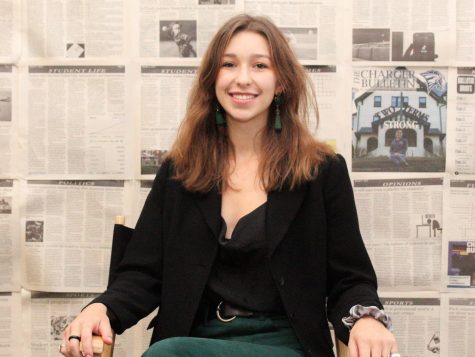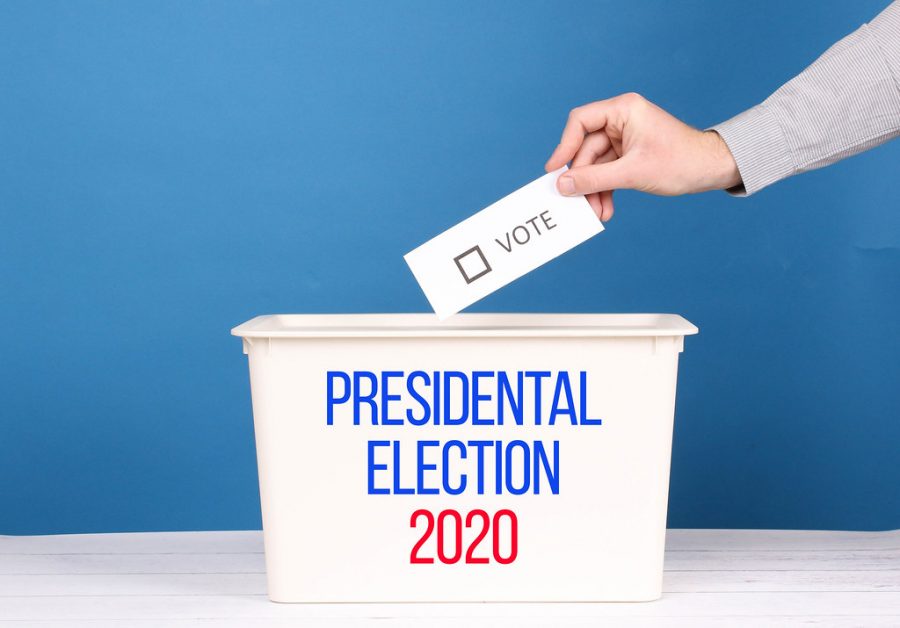What’s likely to come after election day
In anticipation of Tuesday’s election, many individuals have speculated as to how people will react given the preliminary results. Since the results of the election will not be finalized tonight, it is expected that reactions caused by the events of the day may drag on.
Politics have long elicited a strong emotional response in citizens. Following the 2016 presidential election, the Pew Research Foundation found that 96 percent of Trump supporters felt hopeful, whereas 62 percent of Clinton supporters felt angry and 72 percent felt scared.
Following the 2016 election came the first Women’s March on Washington, a reaction to President Trump’s rhetoric surrounding women in power, and a record-setting demonstration. This year, 17 days before the impending election, the fifth annual Women’s March on Washington was held, providing a sneak peek as to what may come following tonight’s results.
Among the backdrop of eight months of the COVID-19 pandemic ‘new normal’ and rising racial tensions, this election comes during unique circumstances. In 2010, Uconn Researcher Peter Turchin predicted that 2020 would be characterized by major civil unrest, after studying the cyclical nature of turmoil in the U.S. from 1870 through 1970. One Boston University historian cautions that the U.S. may be facing another civil war that is echoic of the 1860 national divide.
These predictions do not come without action. In Washington D.C., at George Washington University in Washington, D.C., administrators warn their students to prepare for the aftermath of the 2020 elections, going so far as to recommend them to stockpile at least a week’s worth of food and medical supplies – as the university boards up their windows.
Other major cities are taking similar action. Businesses have boarded up their windows and doors, local and federal law enforcement have planned for unrest. Chicago, New York, D.C. and Los Angeles, among others, face unprecedented challenges after experiencing protests and riots following the death of George Floyd.
John D. Cohen, 34, law enforcement veteran, told the New York Times: “I have never seen a threat environment as dynamic, complex and dangerous as the one we are in right now.”
On our front steps
The conversation regarding the aftermath of this year’s election has not been limited to larger media outlets. The University of New Haven has prepared to support their students. The Myatt Center, Counseling and Psychological Services, The School of Health Sciences and ChargerREC have all prepared programs and events as faculty and students prepare for the outcome today.
Michael Swerdlow, a sophomore clinical psychology major, said, “ I think politics is in a very polarizing environment… people either love or hate the current president with very little middle ground … I would expect a celebratory attitude of people either that he is still in office or out of office now.”
Sophomore general psychology major Jacob Pray said, “With President Trump’s comment about not letting the transition of power flow easily it seems like there’s [a] possibility for a lot of civil unrest, and potentially more rioting.”
Associate professor in the university’s psychology department Kendall Coker believes that the best-case scenario is that one of the candidates wins in a landslide, leaving little room for argument or claims of “fraud.” If the results are close, then the powder keg of frustration created by the COVID-19 pandemic and increased racial tensions will most likely lead to civil unrest, the magnitude of which he is unsure.
On unrest and violence, he said, “We are running towards [destabilization],” and, “You only need one side where the other side is willing to retaliate.”
Some students expect the election to infiltrate the classroom and affect life on campus.
“I expect some professors to bring it up because they feel it is something that needs to be discussed, Swerdlow said. “I think they will ask us our opinions”
However, sophomore psychology major Devon Maddox said, “ I have not experienced any faculty indicate which way they leaned politically or even mentioned politics during classes, so I don’t really expect any professors to explicitly comment about the election.”
Pray said, “while hopefully, everyone will be respectful, in either situation I think there will be extreme aggression between parties. Tensions on campus will be high, and it will be potentially volatile.”
Coker said that the role of this election in the classroom and on campus will be a test of individuals’ capacity for empathy in the context of the current divisive climate.
He stated, “If there is one quote that you get from me,” he said, “it’s that what we need is to be able to have civil discourse in the face of strong disagreement.”
Will people be able to “put aside their own strong reactions to help others” as Coker suggests? Only the coming days will hold the answer.

Isabelle Hajek is a senior at the University of New Haven majoring in psychology with a concentration in forensics and a double minor in criminal justice...







